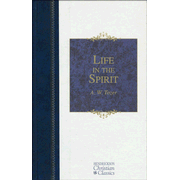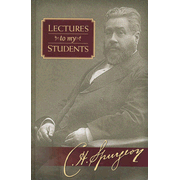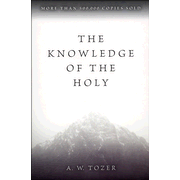
Holiness and the ministry should not be entities that are feuding like the famed
Hatfields and McCoys. If anything, there should be a sweet cooperation between the two; not unlike the relationship of one’s right arm and left arm. All too often, pastors who fail don’t do so because of their position or spiritual gifts. These men fail because of the lack of personal holiness. One man put it this way, “A call to the ministry is a call to holiness!” The following article by Dr. Jim Phillips is very convicting concerning holiness and the ministry. It is my desire that it will help you immensely!
HOLINESS
I basically have two mottoes for my life. One is “onward and upward.” I have always wanted to go onward and upward in my own personal life and in my ministry. I don’t think any of us should be satisfied where we are personally or ministry wide. There is always room for improvement. My other motto is “there is a way.” I believe there is away to do anything if we will work hard enough. Too many people give up too easily. There is a way to make our Sunday school grow. There is a way to do more for missions. There is a way to do anything God wants us to do.
You say, “What does holiness have to do with missions, church growth, Sunday school growth, etc?” Everything. The reason it has everything to do with these topics is because if we fail in our personal lives, our ministries will fail and our churches and our Sunday schools will fail. That doesn’t mean they can’t succeed under someone else. I am only saying that God’s work won’t succeed and go forward and be blessed
under a preacher who is broken by sin.
Paul expressed it this way. Take heed unto thyself and unto the doctrine; continue in them: for in doing this thou shalt both save thyself and them that hear thee. (I Timothy 4:16) Notice the first thing for which we are to take heed. It is not the doctrine (what we teach or our ministry). We are to take heed unto ourselves. How can we take heed unto our ministries unless we first take heed unto ourselves? How can we feed others unless we first feed ourselves? How can we save others unless we first save ourselves? Not save our souls from hell, but save the testimony of our lives. How many preachers are out of the ministry today because they did not save themselves? Their lives failed, and now they have no ministry. They did not “take heed unto themselves.”
Paul expressed the same thing to the Ephesian elders. Take heed therefore unto yourselves, and to all the flock, over the which the Holy Ghost hath made you overseers, to feed the church of God, which he hath purchased with his own blood. (Acts 20:28) Note: Paul admonishes these elders to first take heed unto themselves and then to the flock. The order is the same, yourself first, then others. What a sad statement in Song of Solomon 1:6: They made me the keeper of the vineyards; but mine own vineyard have I not kept. To take care of ourselves first spiritually doesn’t mean we put ourselves before others. It simply means to keep our own spiritual life in tip-top shape so we can minister to others. You can’t get water out of a dry well.
One of the best chapters on this subject is found in Spurgeon’s Lectures to My Students; the first chapter in the book is entitled “The Minister’s Self-Watch.” Several statements from this chapter are: “It will be in vain for me to stock my library, or organize societies, or project schemes, if I neglect the culture of myself; for books, and agencies, and systems, are only remotely the instruments of my holy calling: my own spirit, soul, and body, are my nearest machinery for sacred service; my spiritual faculties, and my inner life, are my battle axe and weapons of war.” How true all of this is! Another statement is “true and genuine piety is necessary as the first indispensable requisite; whatever ‘call’ a man may pretend to have, if he has not been called to holiness, he certainly has not been called to the ministry.” Brethren, it would do us all good to read again this great chapter on “The Minister’s Self-Watch.”
Of course we should first read God’s Word to cause us to grow in grace. There are other good books that might be beneficial. I think every preacher should be familiar with David Brainerd, Robert Murray McCheyne, Hudson Taylor, George Müller, Henry Martyn and a host of other men who walked with God. Brainerd had a great influence on McCheyne and Henry Martyn. McCheyne said, “I want to be as holy as it is possible for a man to be.” Spurgeon said, “A holy minister is an awful weapon in the hand of God.” All of us can be more holy than we are. Let us build ourselves so that we can reach and build others. Let us go forward in personal holiness.
These remarks about the subject of holiness have been taken from the book A Manual For Young Pastors (And Older Ones Too) by Dr. Jim Phillips. Dr. Phillips has graciously given permission for The Working Pastor to use his material. Any quotes from here need to be given to Dr. Phillips. For those who would like a copy of this book simply contact Brother Phillips: Dr. Jim Phillips – 13 Darby Hill Lane Taylors, SC 29687 or call: 864-609-9431 The book is $17.00 and $3.00 S&H.;
GBBMX6U3UQWP
_________________________________
Would you consider purchasing…
By C.H. Spurgeon / Hendrickson Publishers
Though best remembered as the most popular preacher of the Victorian era, C. H. Spurgeon was also founder and president of the Pastors College in London. He supervised the training of over 800 students, presided at an annual conference for ministers, and, on Friday afternoons, delivered regular lectures on every aspect of pulpit ministry.
Featuring such gems as “The Ministers Fainting Fits” “Posture, Action, Gesture, etc.” and “On the Choice of a Text,” this unabridged edition of 28 of Spurgeons classroom discourses on homiletics overflows with practical wisdom, discerning wit, and sage advice. Covering the call, open-air preaching, ordinary conversations, using illustrations, and conduct outside the church, Spurgeons words are as rich and nourishing for pastors and students today as they were more than a century ago.
CHAPTERS INCLUDE
- The Ministers Self-Watch
- Our Public Prayer
- On Spiritualizing
- The Blind Eye and the Deaf Ear
- On Conversion as Our Aim
- The Sciences as Sources of Illustration
- An excellent and useful gift for pastors and seminary students, church history enthusiasts, and even collectors and readers of classic Victorian literature.
By A.W. Tozer / HarperOne
What is the nature of God? How can we recapture a real sense of God’s majesty and truly live in the Spirit. Tozer’s The Knowledge of the Holy, a modern classic of Christian testimony and devotion, addresses these and other vital questions, showing us how we can rejuvenate our prayer life, meditate more reverently, understand God more deeply, and experience God’s presence in our daily lives.
Informative and inspiring, The Knowledge of the Holyilluminates God’s attributes—from wisdom, to grace, to mercy—and shows through prayerful and insightful discussion, how we can more fully recognize and appreciate each of these divine aspects. This book will be treasured by anyone committed to the Christian faith. It bears eloquent witness to God’s majesty and shows us new ways to experience and understand the wonder and power of God’s spirit in our daily lives.
 Pastor Ed Bowen was saved on March 24, 1957 at a revival meeting at Horse Branch Church in Turbeville, S.C. at the age of 23. Brother Bowen has been married to his wife, Margaret, for over 54 years. After being ordained in 1960, Pastor Bowen went on to preach in various places until he became pastor of Cherryvale Baptist. Having been there for over 43 years, in 2000, he had to slow down a bit due to prostate cancer.
Pastor Ed Bowen was saved on March 24, 1957 at a revival meeting at Horse Branch Church in Turbeville, S.C. at the age of 23. Brother Bowen has been married to his wife, Margaret, for over 54 years. After being ordained in 1960, Pastor Bowen went on to preach in various places until he became pastor of Cherryvale Baptist. Having been there for over 43 years, in 2000, he had to slow down a bit due to prostate cancer.












